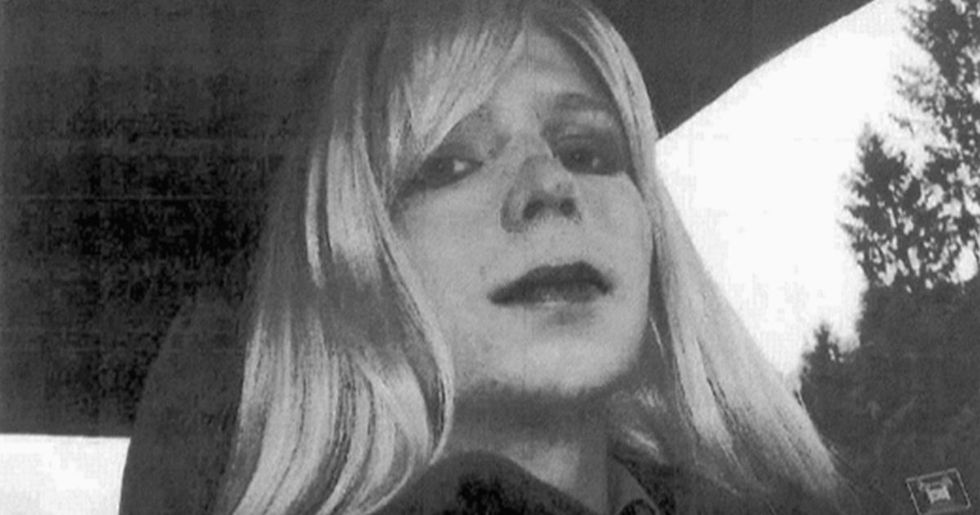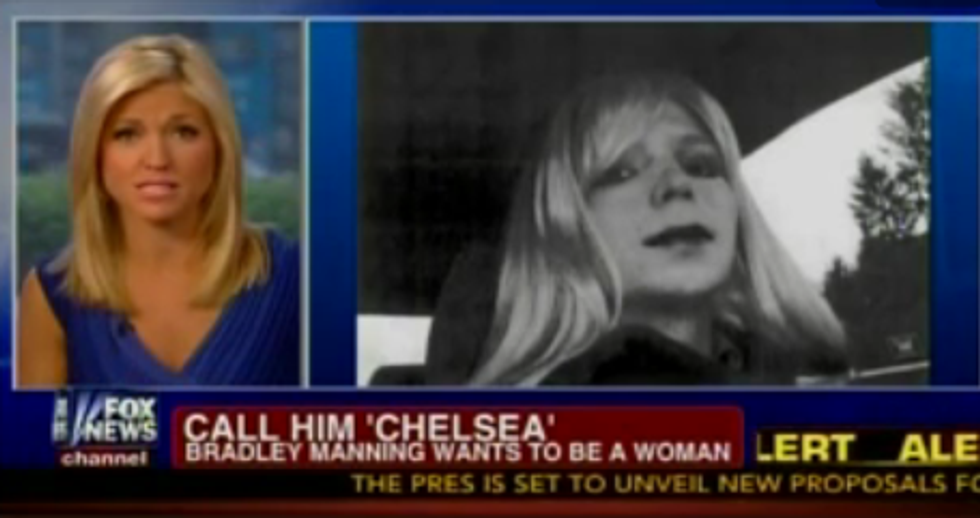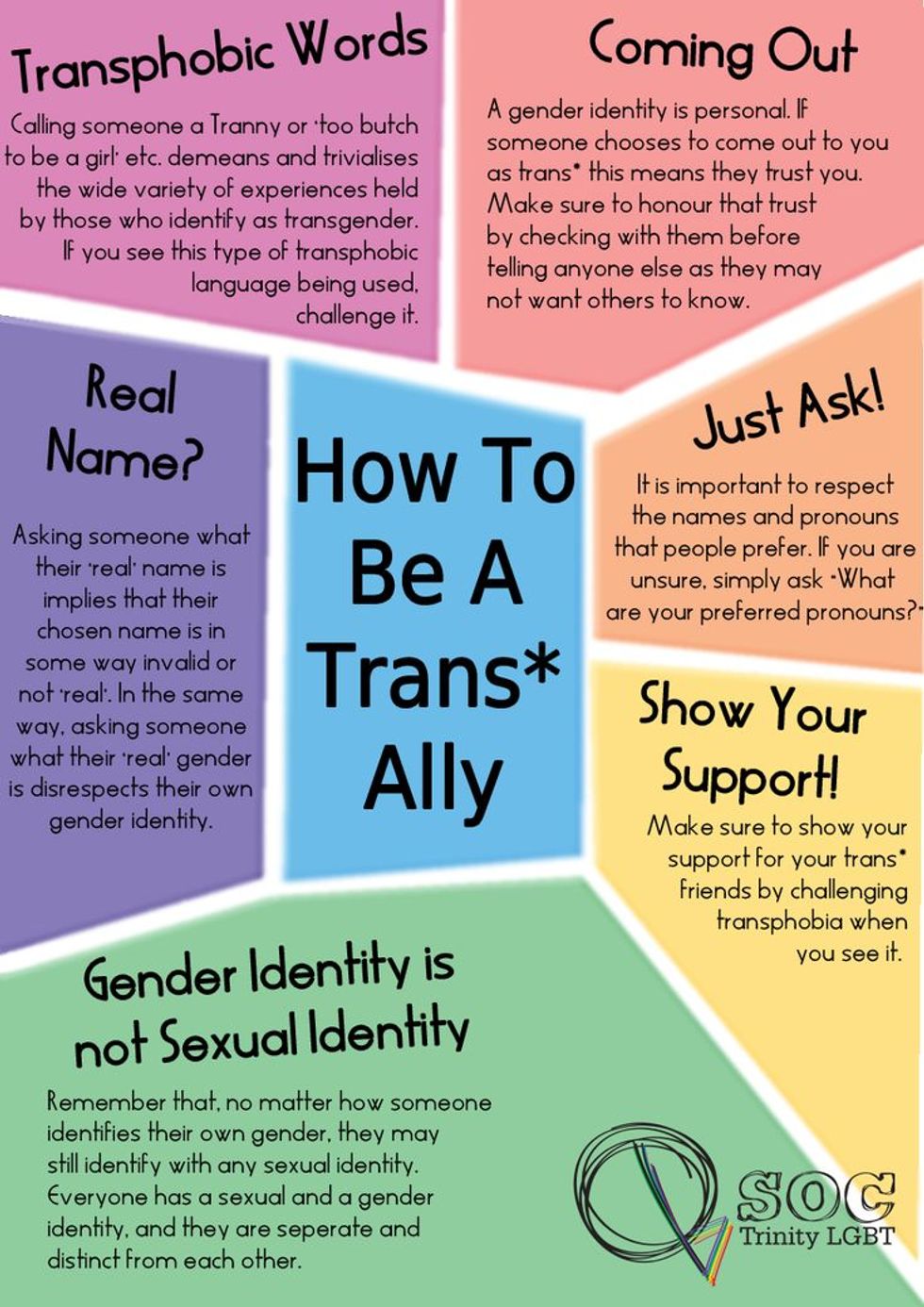The Problem
While I was scrolling through the Odyssey website today, I noticed that there was an article posted about Chelsea Manning, written by Victoria Leonardo. I will not say whether I agree or disagree with her stance on Chelsea Manning, but what I will say is that her rhetoric throughout the article absolutely horrified me. What really stuck out to me is how the author talked about this transgender woman. Bear with me here- I'll pull a few quotes to let you see what I mean.
"I don't care if you were born a he who believes he is a she, or vice versa because that is your choice and no one can tell you what to do but this is just downright unacceptable. Don't even try to intertwine this argument calling me a bad person for saying this— you know, the truth.”
“Harsh? OK, as you will. Those veterans and those in uniform are the sole reason you can safely "change" your gender. Again, let that sink in. Try doing this in the Middle-East and report back to me.”
Why should you care?
Whether it's on the news, in movies, or TV shows, transgender and non binary people are usually underrepresented in the media or talked about poorly altogether. Transgender people in the spotlight, like Caitlyn Jenner, Chelsea Manning, and Laverne Cox are faced with misrepresentation and invalidation of their gender identity in the media almost daily. This article by GLAAD explains more information on trans* representation in the media.
Here's my problem with this article by Victoria. I don't care if you are talking about the world's most infamous criminal, an American hero, or anyone in between- stop misgendering transgender people in the media. First, let me clarify- identifying as transgender is not simply "changing" one's gender or a person "believing he is a she." If you are going to speak on a topic, educate yourself before spouting potentially hurtful words. Given, the author probably doesn't care about Chelsea Manning's feelings, but guess what... this happens all the time in the media, and this has real life implications on other trans people that are out of the spotlight.
Imagine that you are scrolling through Facebook, Twitter, or any news website. Imagine that you have little to no education about transgender people, gender identity, or the struggles that trans people go through daily. You may have never even met a transgender person in real life, let alone sat down and talked with them about their experiences. The only information you have is what you hear through the media. For many, this is a reality. Media shapes how we perceive people and events in the world. Therefore, if you hear a figure in the media calling a transgender woman a "man in a dress/tranny" a "he-she" or a "freak", chances are, your opinion will become quite similar.
(Media reports like this often contribute to the negative public image of transgender people)
In turn, this invalidates transgender and non-binary people, and opens them up to even more stigma and discrimination. I don't mean just Laverne Cox, Caitlyn Jenner, and Chelsea Manning- this discrimination and stigma applies to everyone. Discrimination, as you can probably imagine (and maybe even experienced it yourself) has potentially horrible effects. There's a reason why around 40% of transgender people have attempted suicide at least once. There's a reason why violence against transgender women, especially trans women of color, is especially prevalent- in fact, the life expectancy of a trans woman of color is 35 years.
It's obvious that the way that we talk about transgender people in the media and beyond may contribute to this discrimination, stigma and potentially violence.
Sure, I hate Caitlyn Jenner, but I would never use her dead name or the other pronouns that she does not identify with. I would never use her gender identity as a way of attacking her as a person. Sure, ChelseaManning broke the law, but does this mean that I should attack her gender identity, use old pictures of her pre-transition, or poke fun at her? Of course not, because I know that this has real life implications for people who are not involved.
You have to think of the big picture. By spewing discriminatory nonsense about these public figures, you are essentially allowing for discrimination for transgender people who have done nothing wrong. You are normalizing this rhetoric. You are contributing to the discrimination of transgender people across the world.
What can you do to help mitigate this negative public image of trans people?
Realize how important language is as a journalist. Language and how we talk about transgender people is so important in raising awareness on the topic, and in validating gender identity. Instead of reporting that "the highest paid female CEO used to be a man", or that "Chelsea Manning 'changed' her gender", learn what rhetoric is and isn't appropriate when reporting on trans and non binary people. Research what is politically correct, and what is considered a slur or ignorance. As a journalist, people will take you a lot more seriously this way. This does not mean that you have to play nice if the person you are reporting on did something wrong; hold them accountable for their actions, but do not attack them for simply being who they are. (This applies to social media too, people.)
Stand up against transphobic rhetoric whenever you hear it. If you hear someone call Caitlyn Jenner by her dead name, correct them. If you hear someone poking fun at Laverne Cox, Chelsea Manning, or any other public figure that is transgender, speak up.
Most importantly, educate yourself. Read articles, books, whatever you can get your hands on if you are interested in gender identity. Sit down and talk with a transgender person about their experiences, if they are comfortable with it. I will direct you to one of my older articles that goes over exactly what types of questions/statements you should avoid when in the presence of a transgender person.
Don't let the media shape your opinion on transgender and non binary people. Often, people make assumptions about trans people and have preconceived notions about what trans people are supposed to be, how they are supposed to act, etc. even before meeting. Actually doing your own research and sitting down with a transgender person may open your mind to a world of knowledge that you have never encountered before.









 Photo by
Photo by  Photo by
Photo by  Photo by
Photo by 



















